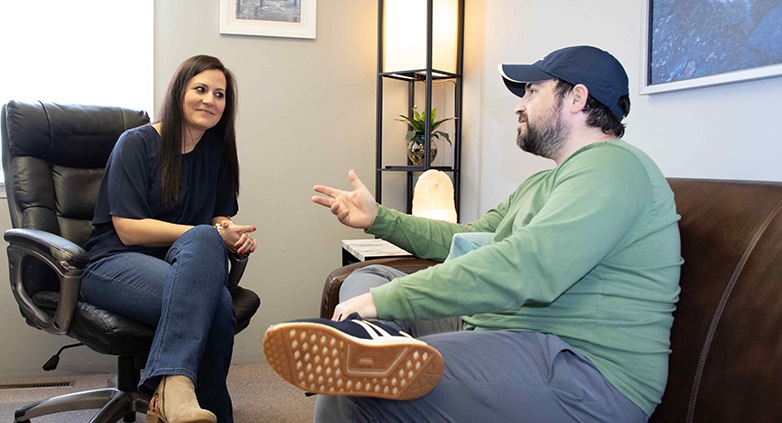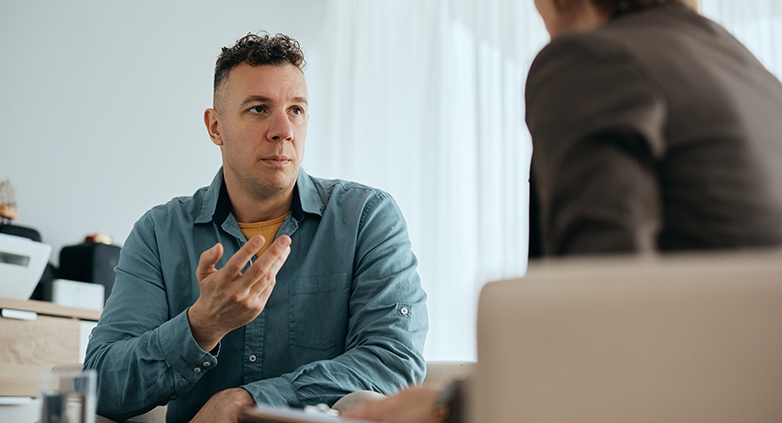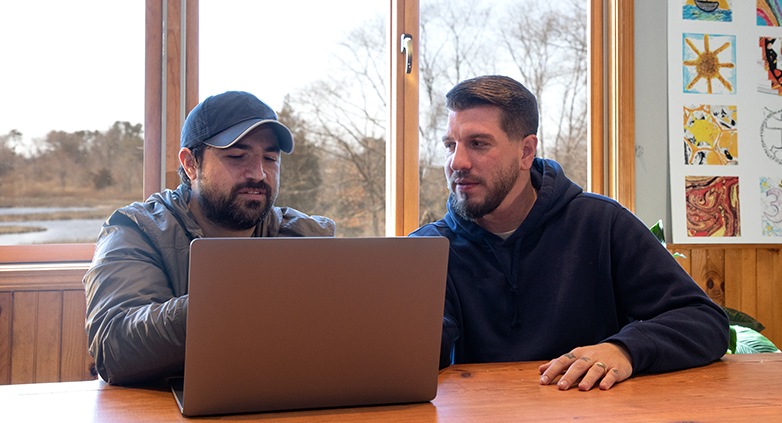
Family Roles in Addiction – 7 Roles Perpetuating Addiction
Substance use disorders rarely affect just one person—they ripple through families, changing how everyone interacts.
When a loved one struggles with addiction, family members can unintentionally fall into habits that keep the cycle going.
Understanding these family roles in addiction is crucial for both preventing and treating addiction.
Real people. Real support.
Seeking Help for Yourself or a Loved One?
Connect with our professionals to start the journey to recovery.
Call 860.388.9656 for immediate support.
How Can Family Influence Addiction?
Genetics can predispose someone to developing an addiction; however, dysfunctional family roles can drive that person to drug and alcohol dependence. When a loved one is in the throes of addiction, their behavior can affect the entire family dynamic. People can unconsciously fall into dysfunctional codependent family roles such as The Enabler as they attempt to cover for the addict. However, the family role in addiction recovery can be a powerful tool to return to sobriety. Community-based addiction treatment is one of the most successful frameworks to help an addicted person stay clean in the long term.
Although only a single loved one has a substance abuse disorder, successful addiction treatment goes beyond just them. Family roles in addiction are simultaneously the cause, the reason for continuation, and the treatment for drug dependency. When a family can transform their dynamic and rally in support of their addicted loved one, real healing and transformation can begin.
This article will discuss the causes of addiction and the role of group dynamics in continued substance abuse. If you have any questions about the content below, contact Project Courage for more information.

What are the Causes of Addiction?
No one intends to struggle with substance abuse and mental health, nor would anyone wish those things on any of their family members. However, if you can understand the causes of addiction, you will be in a better place to understand how your loved one fell into substance abuse.
- Biological: When people use drugs or alcohol, the brain releases dopamine—a chemical that makes us feel pleasure. Over time, this rewires the brain, making it harder to resist cravings and easier to become dependent.
- Tolerance: As use continues, the body adapts. People need more of the substance for the same effect, increasing the risk of addiction.
- Withdrawal: For some substances, stopping use can cause severe symptoms, making it harder to quit.
Is Addiction Hereditary or Environmental?
We are commonly asked, do addictions run in families?
Very few human behaviors can be attributed exclusively to genetics or to environmental causes. Addiction is no different. Researchers agree that addiction is caused by some combination of both environmental and hereditary factors.
Research on substance use disorders indicates that an estimated 40 to 60% of addiction risk is genetic. Even if a parent or grandparent has never experienced substance abuse issues themselves, they can still pass on the genomes that cause addiction risk.
Additionally, the social environment can also contribute to addiction, even if the addiction gene is not present. For example, if parents model addict behaviors, either knowingly or unknowingly, that can instill the seeds for addiction and codependency in their children.
Parental attitudes, availability of drugs and alcohol, weak social bonds, and dysfunctional family roles can also lead to addiction. Substance abuse in teens and young adults often begins as a misguided need for autonomy. Family roles in addiction are complex. It often takes trained addiction professionals to untangle the dysfunction that perpetuates addiction. If your loved one struggles with addiction, schedule a consultation with a recovery expert at Project Courage.
Free Download
Proven Programs for Lasting Recovery
Receive your free guide to understanding alcohol addiction and discovering recovery programs tailored to you. Learn how to build a personal sobriety plan and get support every step of the way.
What is the Impact of Addiction on Families?
Addiction affects more than just the person struggling with substance abuse; substance abuse and the family are deeply intertwined, as group dynamics often adapt around the addiction. It is common for group dynamics to adapt to a loved one’s substance use disorders, creating unhealthy coping mechanisms that encompass the entire family unit.
New research indicates that addiction is a family disease. It is not enough for the person with addict behaviors to get clean; siblings, parents, and children should also attend therapy and support groups to help them end the cycle that allows addiction to continue.
Download our Guide: Understanding Addiction and Recovery

How Addiction Alters Family Dynamics
When a loved one falls into drug and alcohol dependency, it can create or exacerbate dysfunctional family roles. Siblings, parents, children, and people who struggle with addiction often report the following experiences:
- “Jekyll and Hyde” behavior from their loved one, creating fear and unease over which version of their family member they will get that day.
- An atmosphere of mistrust, suspicion, and betrayal that extends beyond the person struggling with addiction.
- Fear of relapse or overdose leads to a constant elevated state of stress, which is unsustainable. These shifts contribute to addiction and family dynamics that sustain unhealthy patterns unless actively addressed through therapy.
- Addicted family members may engage in criminal behavior, including stealing from loved ones.
- The monetary side of addiction: families put a lot of resources into supporting, saving, and trying to help their loved one get clean. This can lead to economic instability and resentment.
- Addiction can cause estrangement when siblings, children, and parents disagree about the best course of action for their loved one.
Unpacking Common Family Roles in Addiction
Families that engage in group therapy to treat addiction often realize that their dynamics unknowingly led their loved one down the path to substance abuse. These stories and discoveries are the key in effectively treating addiction at the family level.
These are some common ways that parents unknowingly play a role in addiction:
- Teens see their parents drinking frequently, which leads them to think that they should also drink alcohol frequently.
- If an ill loved one has prescriptions for opioids, someone else may take one of their pills not realizing that it’s stronger and more addictive than OTC medications.
- Young adults who feel like they don’t fit into the family unit may turn to their peers for guidance on what is right and wrong.
- If undiagnosed mental or physical illness runs in families, it is not uncommon for self-medicating through drugs and alcohol to be normalized.
- Young adults and teens may turn to drugs and alcohol to rebel against strict rules and high expectations
- Children in broken or dysfunctional families may turn to drugs and alcohol to fill an emotional void.

The 7 Family Roles in Addiction
These 7 roles frequently show up in households that are experiencing addiction:
1. The Addict
They are the central figure whose behavior impacts all other family dynamics. The addicted loved one will likely have dependent behaviors as they attempt to support an active drug or alcohol habit. In extreme cases, the addict may resort to stealing, lying, and manipulating everyone around them to secure their next hit.
2. The Caretaker
This is the person who devotes all their energy into maintaining balance and harmony at the cost of their own needs. Caretakers may fall into increasingly more dysfunctional addicted family roles in the family to try and keep everyone around them happy at any cost. Caretakers often believe that if everyone could just get along, then the issues will disappear without having to be addressed.
3. The Hero
Often an eldest child or a perfectionist, Type A person. They will strive for perfection in all things in order to compensate for the family issues. Heroes believe that everything will be okay if they just attain a new level of success and leadership. However, these self-induced expectations cause anxiety, depression, resentment, and other mental health challenges.
4. The Scapegoat
In the roles of a dysfunctional family, the scapegoat is often the youngest or middle child. They are the one who is most often blamed for all the problems. Because of this, they are incentivized to act out and get into new trouble so that they divert attention from the addict. In extreme situations, the scapegoat may be unable to manage the compounding blame and feelings of anger. The scapegoat may estrange themselves from the family in order to escape their role.
5. The Mascot
It is common for the mascot to be the youngest person in the family. They will use humor as a coping mechanism to bury their own fears, diffuse tension, and gain approval from those around them. The mascot is often emotionally fragile. They are unequipped to deal with negative feelings, so they become the jokester to protect themselves from the turbulent dynamics around them. Mascots often believe that if they can keep everyone around them happy and laughing, then the problems they witness will cease to exist.
6. The Lost Child
This person is the one who is quiet, withdrawn, and overlooked. Because they are less involved in the drama and disagreement that stem from dysfunctional family roles in addiction, they receive less attention. When the lost child is routinely forgotten, they are likely to self-isolate or estrange from the rest of the family. This behavior can have a negative effect on other relationships that they pursue.
7. The Enabler
The last of the addiction family roles is the enabler. This person will enable the addict by supporting them, making excuses for their behavior, lying to everyone around them, and not creating boundaries with the addict. Although the enabler can be anyone, it is most often a parent, grandparent, or older sibling. While enablers mean well and genuinely believe that they are doing the right thing, their behavior makes the problems of addiction and family dysfunction worse.
How to Break the Cycle
The first step in ending the destructive cycle of addiction is for everyone to understand and acknowledge the role of family in addiction. Once a family is able to see how their actions are unknowingly perpetuating dysfunction, they can take steps towards real healing.
Project Courage is an addiction treatment center in Connecticut, which specializes in outpatient family-based recovery programs. Contact us today for more information on the intake process and your options for treatment.
Real people. Real support.
Seeking Help for Yourself or a Loved One?
Connect with our professionals to start the journey to recovery.
Call 860.388.9656 for immediate support.

Family Roles in Addiction Prevention
While family dynamics and heredity can contribute to addiction, they can also be the solution for addiction as well.
Substance use disorders are a life-long battle that can bring family members into dangerous, illegal, and unhealthy situations. The long-term health risks of substance abuse include cancer, heart disease, stroke, liver disease, risk of blood diseases, dental disease, weight loss, and necrosis of bowel tissue.
The best solution for addiction is prevention.
Here are 6 ways parents can prevent their teens from becoming addicted to drugs and alcohol:
- Maintain strong family bonds by telling your kids that you love them, spending quality time together, and supporting your teen’s interests.
- Lead by example: if you don’t consume alcohol or use medically unnecessary prescription drugs, your children won’t get into drugs and alcohol by trying to imitate you.
- Discuss the dangers of drug and alcohol abuse with your children, no matter how old they are.
- Keep a close eye on any prescription drugs in the home. If a prescription painkiller is no longer needed after a medical event, dispose of the medication.
- Monitor your teens for changes in mood, sleep habits, school performance, and openness.
- Maintain open communication with your teen and remind them that you are here to help them out of trouble, not get them into trouble.
These are hard conversations to have with teens. If you need support or resources during this process, please contact Project Courage for more information.
FAQ
Family plays a central part in both the development and recovery from addiction. Families can unknowingly contribute to substance abuse through enabling behaviors, lack of boundaries, or by falling into dysfunctional roles (such as the Enabler, Hero, or Scapegoat). Conversely, a supportive family environment can greatly assist recovery by promoting healthy behaviors, setting clear boundaries, and participating in family therapy.
Strong family bonds, open communication, and clear expectations about substance use are among the most powerful protective factors against drug abuse. Research shows that children who have supportive parents, regular family meals, and parents who monitor their activities are less likely to experiment with drugs and alcohol.
Both family and peers influence a person’s risk of substance use. Families can either shield against or contribute to drug abuse through modeling behavior, emotional support, or family stress. Meanwhile, peer groups—especially during adolescence—can sway choices around drug use, either encouraging risky behaviors or supporting healthy habits.
Free Download
Proven Programs for Lasting Recovery
Receive your free guide to understanding alcohol addiction and discovering recovery programs tailored to you. Learn how to build a personal sobriety plan and get support every step of the way.
Family-Based Addiction Treatment in Connecticut
As the first and strongest support system that a person can have, it is important to include the family unit in the process of healing from addiction.
Because addiction causes family members to fall into their own dysfunctional roles, it isn’t enough to just help the addicted person get sober; everyone must find a path forward and reconfigure their group dynamic.
This is why Project Courage offers in-home, family-based, and outpatient program options. Our team believes that no person is an island, so the power of community is the best way to heal. If your loved one has a substance use disorder, contact Project Courage to learn about our intake process.


